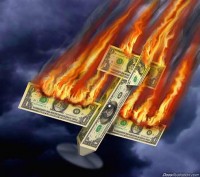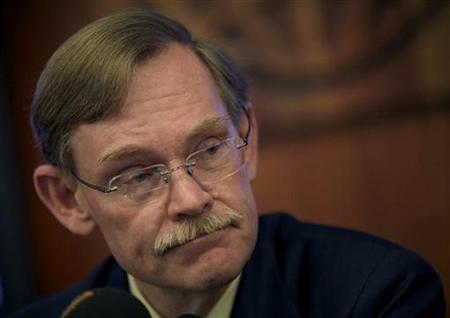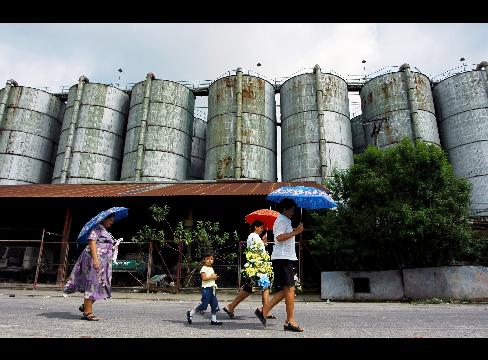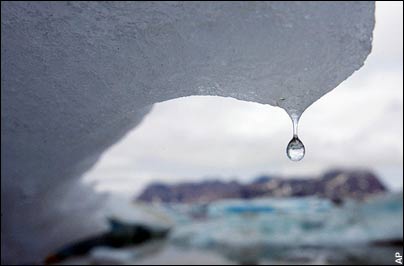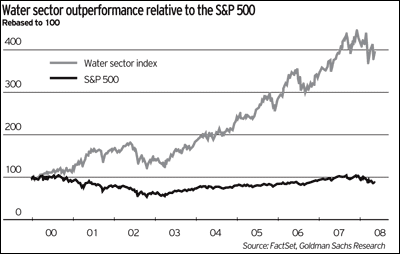
(NaturalNews) The fate of the nation’s water supply is under debate as hearings in the House and Senate begin on the Water Restoration Act of 2007. Opponents claim this Act threatens to greatly expand the Federal Government’s roll in water management. This Act would define waters of the U.S. as “all interstate and intrastate waters and their tributaries, including lakes, rivers, streams (including intermittent streams) mudflats, sand flats, wetlands, sloughs, prairie potholes, wet meadows, playa lakes, natural ponds, and all impoundments of the foregoing”. In other words, this bill will give the federal government total control of the most basic of all commodities necessary to life on this earth.
The Environmental Protection Agency and the Army Corps of Engineers currently have authority over all waters considered navigable in the U.S. The Code of Federal Regulations 33 CFR 329.4 defines navigable waters as “those waters that are subject to the ebb and flow of the tide and/or presently used, or have been used in the past, or may be susceptible for use to transport interstate or foreign commerce.”
The Water Restoration Act, a bipartisan bill lead/sponsored by Congressman Oberstar, is an amendment to the Federal Water Pollution Act, commonly known as the Clean Water Act. Since major amendments were enacted in 1977, the Clean Water Act protected all of the nation’s waters as Congress intended, until 2003, when the Bush administration gave in to pressure form corporate polluters and redefined the meaning of water. This happened through a bureaucratic device called a ‘guidance’, whereby the EPA instructed federal environmental law enforcers to back off from holding many polluters accountable.
Proponents of the Clean Water Restoration Act see it as restoring what was Congress’s original intent, that the Clean Water Act protect all of the nation’s waters. They see water quality and quantity issues as needing examination this spring, and believe now is the time for getting legislation to protect the water supply in order with the passage of this Act. They see the Act as offering needed protection from water pollution, from terrorists, and being in the interests of national security.
Is water a basic human right or a commodity?
Related article: UN rejects water as basic human right
Actually this should cause a global outrage and a revolution. – The Infinite Unknown
Under the Public Trust doctrine, the government is prohibited from converting something such as water to the status of a commodity. Water is considered a basic human right that must remain in the public trust, meaning that it is so important to our survival that it should never be reclassified as a commodity. Many believe that the Water Restoration Act lays the foundation for removing water from the Public Trust and facilitating it to fall under the ownership and control of corporations as a commodity. This is similar to how seeds have fallen into corporate control when they were once viewed as part of the Public Trust under the assumption that all people have a right to seeds with which to grow food for themselves.
Commodity owning corporations can now sue the government if it acts in any way to prevent them from making profits they believe they are entitled to. This ability to sue for impaired profit making can be the result of environmental regulations, of Federal laws which may prevent the corporations from hiring illegal workers, or issues of eminent domain in which an individual’s land stands in the way of corporate earnings, and the courts have not acted to protect the interests of the corporation.
All the corporation has to do to supersede federal law is claim ‘trade illegal’ provisions of NAFTA and CAFTA. Federal laws and regulations are then put aside, along with property rights. CAFTA goes a long way in establishing the privatization of water supplies, including in-land navigated waters and the right to use and access the water supplies.
Federal control over all water may lead to its privatization
If the federal government is unable to gain total control of all water from whatever source, it is highly unlikely that water can be taken from the status of Public Trust and changed to that of commodity. If in fact the Water Restoration Act allows for the complete control of the federal government over all water in the country, as it opponents claim, water can loose its status as part of the Public Trust, and become a commodity available for corporate ownership.
The Water Restoration Act federalizes all inland and coastal waters from any source. This Act is needed to set the stage for the corporate privatization guaranteed under CAFTA, and would effectively convert the entire water supply from any source into the status of a commodity.
Read moreWater Restoration Act May Lead to Privatization of Water Supply









